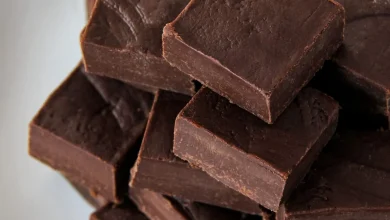Greek-Style Summer Squash Recipe
Discover the flavors of Greek-inspired summer squash, a delightful and simple vegetable dish that brings together the warmth of olive oil, the bite of garlic, and a hint of cayenne heat. This recipe makes for a wonderful side dish or can even stand alone as a vegan entrée, perfectly balancing soft, slow-cooked squash with the fresh acidity of roma tomatoes and fragrant dill. Here’s a detailed recipe that will bring out the best of your squash, with careful instructions for cooking to perfection.
Recipe Details
| Description | Value |
|---|---|
| Recipe Name | Greek-Style Summer Squash |
| Preparation Time | 30 minutes |
| Cook Time | 50 minutes |
| Total Time | 1 hour 20 minutes |
| Cuisine | Greek |
| Course | Side Dish / Vegan Entrée |
| Servings | Approximately 4 |
| Rating | 5 stars (based on 1 review) |
| Calories per Serving | 83.4 |
Ingredients
| Quantity | Ingredient |
|---|---|
| 1 tbsp | Olive oil |
| 1 clove | Garlic, minced |
| 6 | Roma tomatoes, chopped |
| 1 dash | Cayenne pepper |
| 1 tsp | Dried dill weed |
| To taste | Salt |
| To taste | Black pepper |
Note: Use fresh, firm summer squash for the best results. Roma tomatoes are preferred for their sweet, mild flavor, but any vine-ripened tomato can work in a pinch.
Nutritional Information (per serving)
| Nutrient | Amount |
|---|---|
| Calories | 83.4 kcal |
| Total Fat | 4g |
| Saturated Fat | 0.6g |
| Cholesterol | 0mg |
| Sodium | 7.6mg |
| Carbohydrates | 11.3g |
| Fiber | 3.5g |
| Sugars | 6.9g |
| Protein | 3.9g |
Instructions
-
Prepare the Skillet
Begin by preparing a large cast-iron skillet with a tight-fitting lid. Lightly spray the skillet with non-stick cooking spray, ensuring an even coating to prevent sticking during the cooking process. -
Heat the Skillet
Place the skillet on a burner set to very low heat. Let it warm gently, taking care not to let it get too hot, as the squash will cook slowly and evenly over low heat. -
Add Olive Oil and Garlic
Pour the olive oil into the preheated skillet, followed by the minced garlic. Let the garlic sizzle lightly in the oil for about a minute, releasing its aroma, but be careful not to let it brown or burn, as this can add an unwanted bitterness. -
Add the Summer Squash
Gently add the sliced summer squash to the skillet. Spread it out evenly over the garlic and oil, allowing each piece to have good contact with the skillet surface for even cooking. -
Add the Roma Tomatoes
Sprinkle the chopped roma tomatoes over the squash. Their natural juices will help create a light sauce as they cook, so avoid stirring them in just yet. -
First Cook Cycle
Cook the squash and tomatoes uncovered for 10 minutes. During this time, avoid stirring; letting the squash sit undisturbed will help to develop a slight browning on the underside, enhancing the flavor. -
Cover and Continue Cooking
After the initial 10 minutes, cover the skillet with the lid and reduce the heat if necessary to ensure it remains at a gentle simmer without risk of burning. Continue to cook for another 30 minutes, still without stirring. During this time, the squash will soften further and release its natural juices. -
Check for Tenderness
After 30 minutes, uncover the skillet. At this point, the squash should be very tender and near melting in consistency. The browning on one side is normal and adds depth to the dish’s flavor. -
Stir Gently and Evaporate Liquid
Carefully stir the squash, being mindful not to break it up too much. Turn the heat up slightly and let the mixture cook, stirring gently on occasion, until most of the liquid has evaporated. The final texture should resemble a chunky puree, with the squash retaining some shape but very tender. -
Season the Dish
Remove the skillet from heat and season the squash with salt, black pepper, and cayenne to taste. The cayenne should be added sparingly to lend just a hint of heat that complements the sweetness of the tomatoes and squash. Lastly, sprinkle in the dried dill weed and gently stir to incorporate. -
Serve Immediately
Greek-Style Summer Squash is best enjoyed warm, straight from the skillet. It can be served as a side to a main course, paired with grains or crusty bread, or as a standalone vegan entrée.
Cooking Tips
- Low Heat is Key: Keeping the heat low throughout the cooking process is essential. This method gently softens the squash without allowing it to turn mushy too quickly, preserving a bit of texture.
- Be Patient with the Liquid: It’s essential to allow the liquid to evaporate at the end so that the flavors concentrate and the dish achieves its rich, slightly chunky texture.
- Make Ahead: This dish can be prepared a few hours in advance and gently reheated just before serving.



